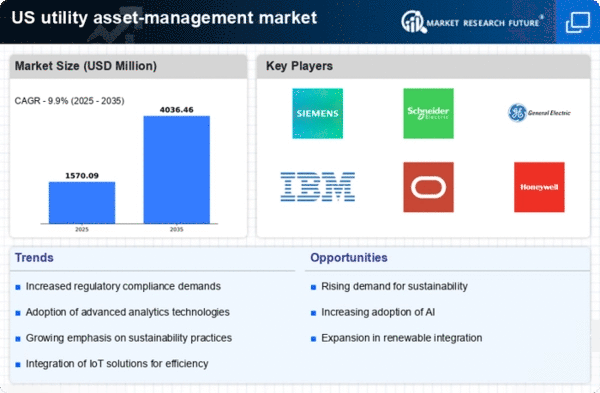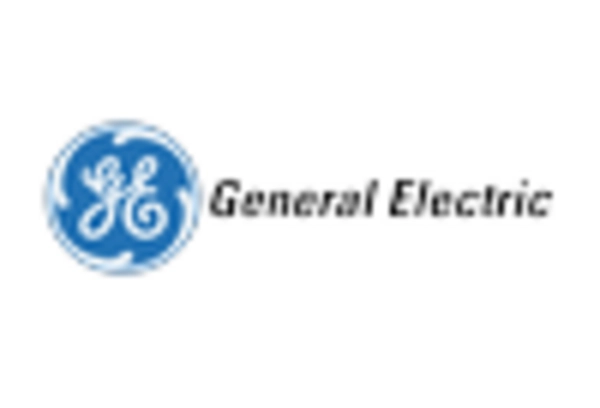Regulatory Compliance and Standards
The utility asset-management market is increasingly influenced by stringent regulatory compliance. These standards are imposed by federal and state agencies. These regulations aim to ensure safety, reliability, and environmental protection in utility operations. As a result, utilities are compelled to invest in advanced asset-management systems that facilitate compliance tracking and reporting. The market is projected to grow. Utilities are expected to allocate approximately $50 billion annually to meet these regulatory requirements. This investment not only enhances operational efficiency but also mitigates risks associated with non-compliance, thereby driving demand for sophisticated asset-management solutions.
Increased Focus on Customer Engagement
The utility asset-management market is experiencing a shift towards increased customer engagement. Utilities are recognizing the importance of customer satisfaction and are investing in technologies that enhance communication and service delivery. This trend is driven by the need to provide real-time information and improve responsiveness to customer inquiries. As a result, utilities are adopting asset-management solutions that facilitate better customer interaction and feedback mechanisms. The market is likely to expand as utilities allocate resources to enhance customer experience, with an estimated growth of 15% in customer-centric asset-management technologies over the next five years.
Aging Infrastructure and Maintenance Needs
The aging infrastructure across the United States poses a significant challenge for the utility asset-management market. Many utilities are grappling with outdated systems that require extensive maintenance and upgrades. It is estimated that over 30% of utility assets are beyond their useful life, necessitating immediate attention. This situation compels utilities to adopt comprehensive asset-management strategies to prioritize maintenance and replacement efforts. The market is expected to witness a surge in demand for innovative solutions. These solutions will enable predictive maintenance and asset optimization, ultimately enhancing service reliability and reducing operational costs.
Investment in Renewable Energy Integration
The transition towards renewable energy sources is significantly impacting the utility asset-management market. As utilities strive to integrate solar, wind, and other renewable sources into their grids, they face challenges related to asset management and grid stability. This shift necessitates the adoption of advanced asset-management systems that can accommodate the complexities of renewable energy integration. The market is expected to grow as utilities invest approximately $30 billion in technologies that support renewable energy assets and enhance grid resilience. This investment not only aligns with sustainability goals but also drives innovation in asset-management practices.
Technological Advancements in Data Analytics
Technological advancements in data analytics are reshaping the utility asset-management market. The integration of big data and machine learning allows utilities to analyze vast amounts of operational data, leading to improved decision-making and asset performance. By leveraging these technologies, utilities can identify patterns, predict failures, and optimize asset utilization. The market is projected to grow as utilities increasingly invest in data-driven asset-management solutions, with spending expected to reach $20 billion by 2026. This trend indicates a shift towards more proactive management approaches, enhancing overall operational efficiency.
















